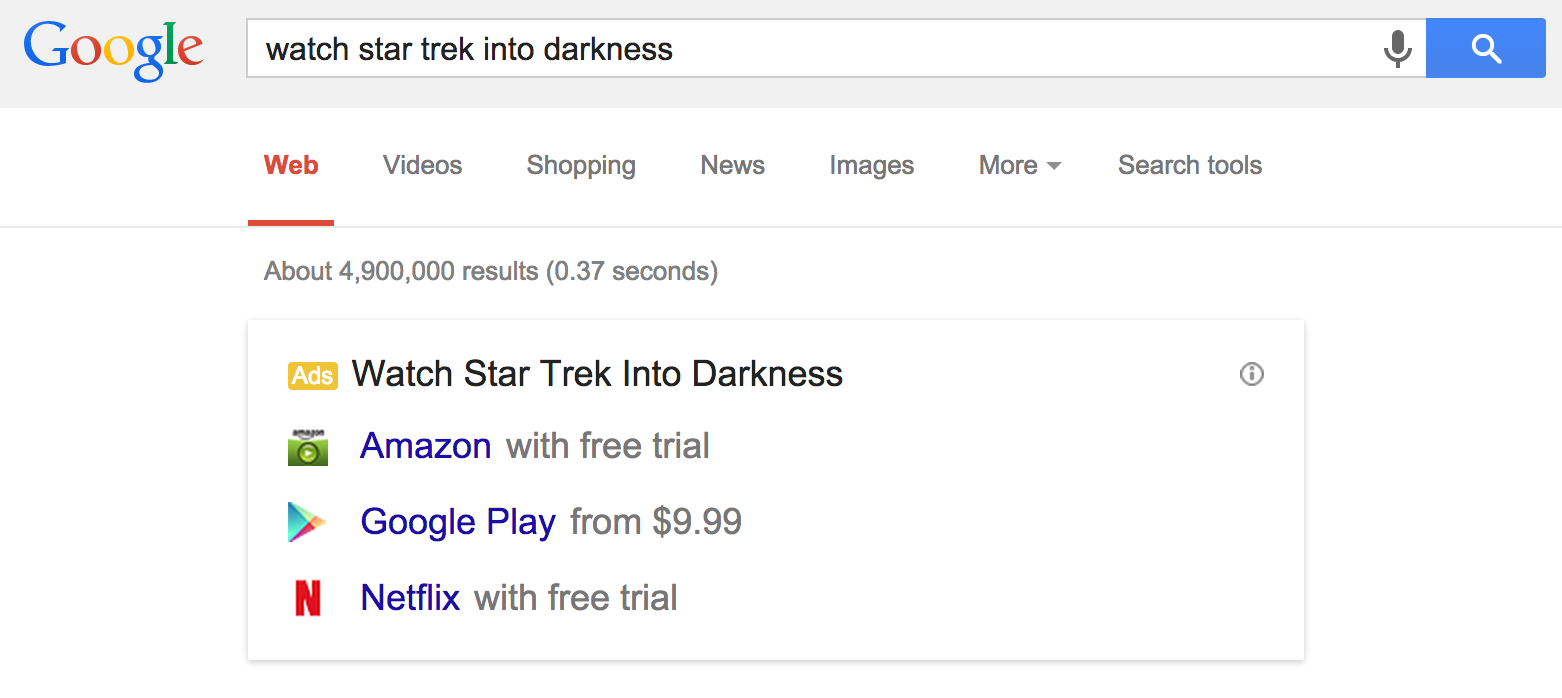Although SOPA was ignominiously defeated in 2012, the content industry never really gave up on the basic idea of breaking the Internet in order to combat content piracy. The industry now claims that a major cause of piracy is search engines returning results that direct users to pirated content. To combat this, they would like to regulate search engine results to prevent them from linking to sites that contain pirated music and movies.
This idea is problematic on many levels. First, there is very little evidence that content piracy is a serious concern in objective economic terms. Most content pirates would not, but for the availability of pirated content, empty their wallets to incentivize the creation of more movies and music. As Ian Robinson and I explain in our recent paper, industry estimates of the jobs created by intellectual property are absurd. Second, there are serious free speech implications associated with regulating search engine results. Search engines perform an information distribution role similar to that of newspapers, and they have an editorial voice. They deserve protection from censorship as long as they are not hosting the pirated material themselves. Third, as anyone who knows anything about the Internet knows, nobody uses the major search engines to look for pirated content. The serious pirates go straight to sites that specialize in piracy. Fourth, this is all part of a desperate attempt by the content industry to avoid modernizing and offering more of their content online through convenient packages such as Netflix.
As if these were not sufficient reason to reject the idea of “SOPA for Search Engines,” Google has now announced that they will be directing users to legitimate digital content if it is available on Netflix, Amazon, Google Play, Spotify, or other online services. The content industry now has no excuse—if they make their music and movies available in convenient form, users will see links to legitimate content even if they search for pirated versions.

Google also says they will be using DMCA takedown notices as an input into search rankings and autocomplete suggestions, demoting sites and terms that are associated with piracy. This is above and beyond what Google needs to do, and in fact raises some concerns about fraudulent DMCA takedown notices that could chill free expression—such as when CBS issued a takedown of John McCain’s campaign ad on YouTube even though it was likely legal under fair use. Google will have to carefully monitor the DMCA takedown process for abuse. But in any case, these moves by Google should once and for all put the nail in the coffin of the idea that we should compromise the integrity of search results through government regulation for the sake of fighting a piracy problem that is not that serious in the first place.

 The Technology Liberation Front is the tech policy blog dedicated to keeping politicians' hands off the 'net and everything else related to technology.
The Technology Liberation Front is the tech policy blog dedicated to keeping politicians' hands off the 'net and everything else related to technology.